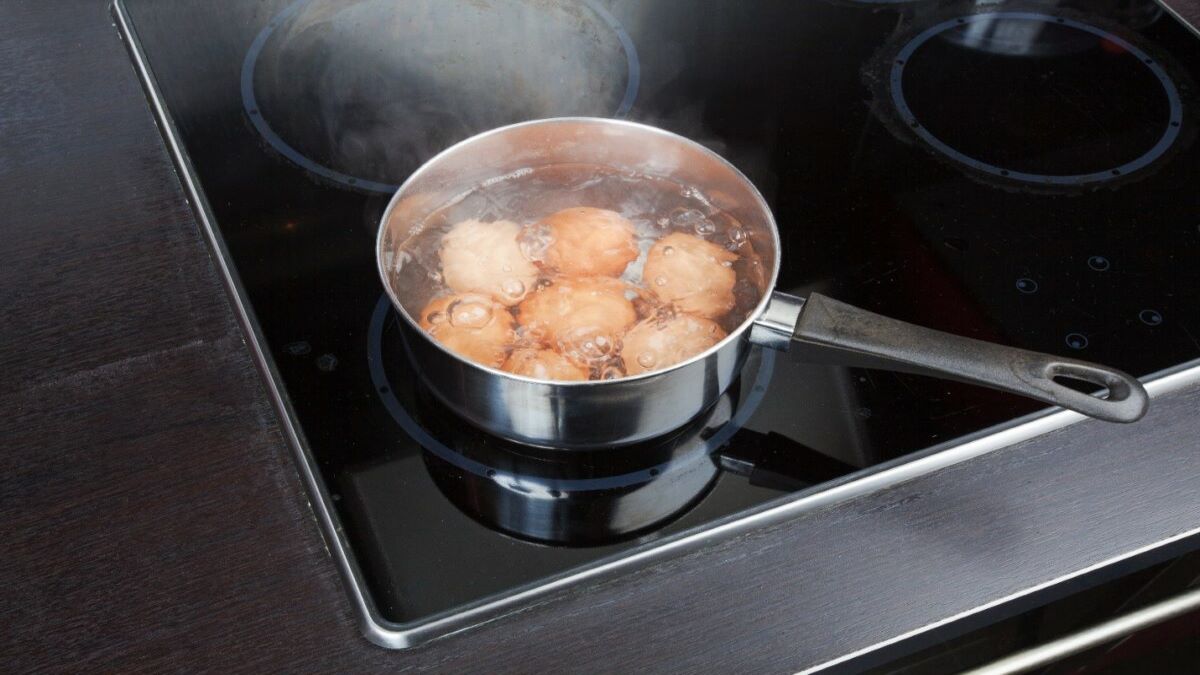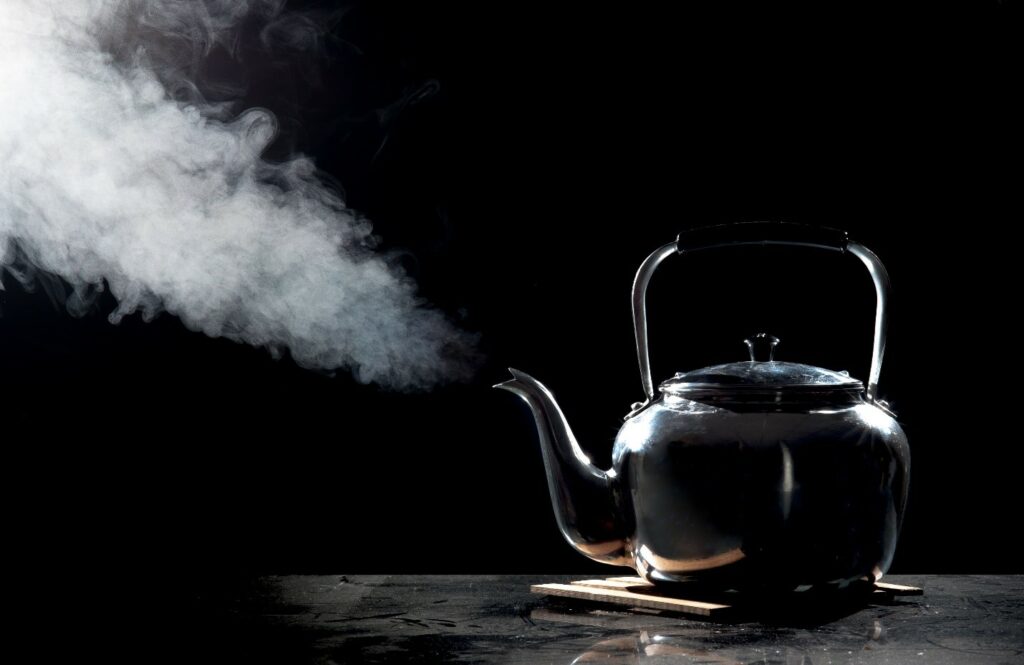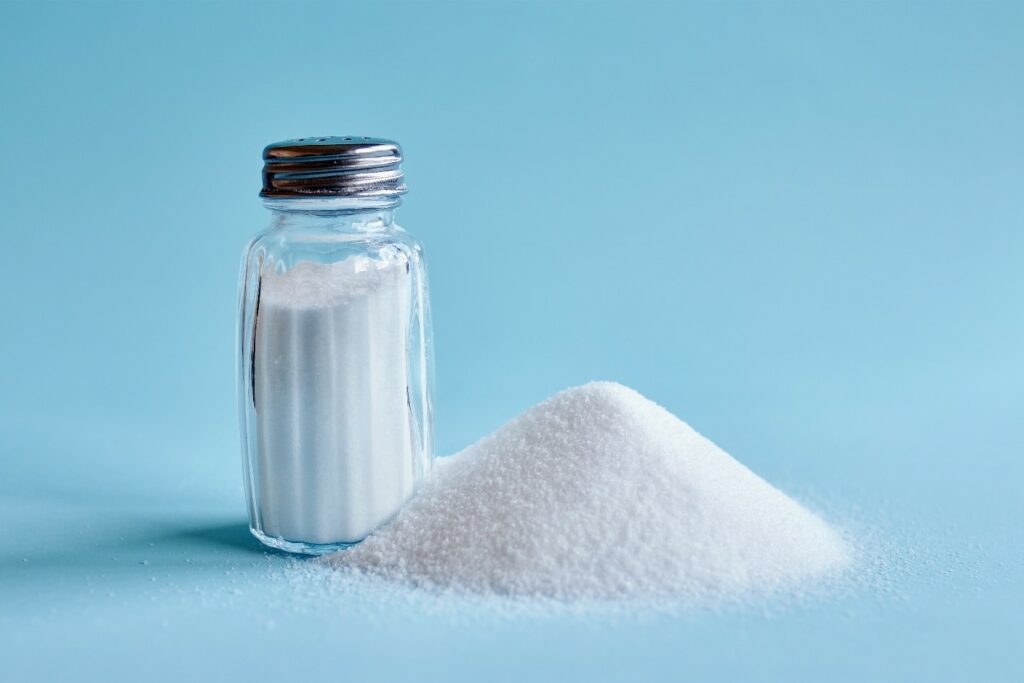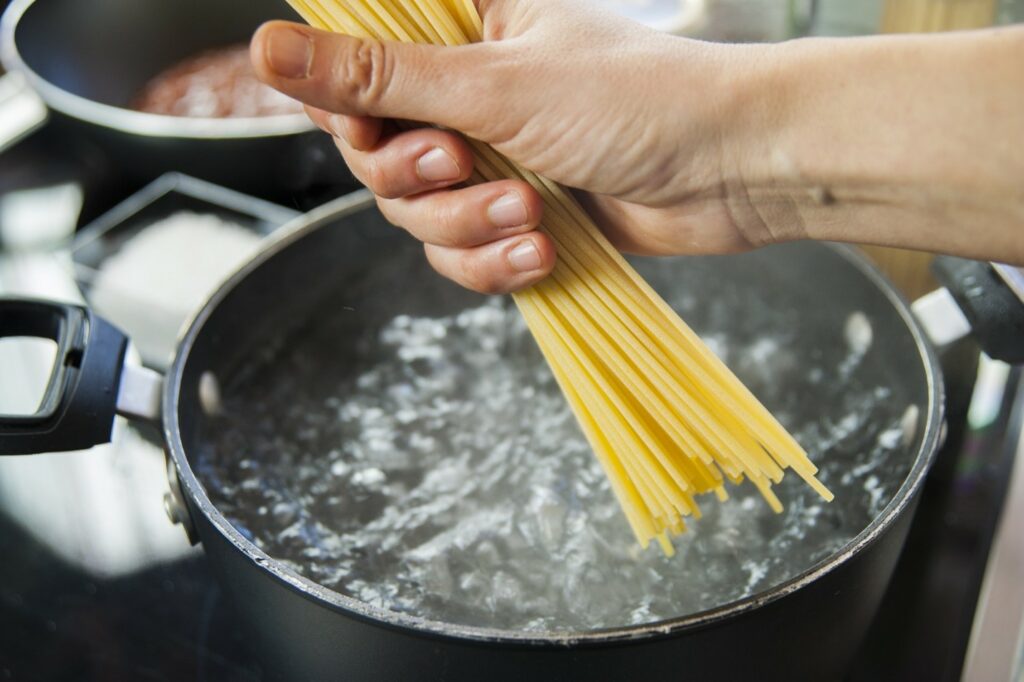
May 25, 2021
An old wives’ tale is a commonly practiced superstition or belief that is often regarded as unscientific or incorrect. Old wives’ tales have been influencing society for centuries and can be anything from scaring someone when they have the hiccups to drinking whisky and lemon tea to cure a cold. These superstition-based facts have had a major influence on family traditions, and even society as they continue to be passed on from generation to generation.
One of the most practical old wives’ tales that has become a daily routine for many people is adding a pinch of salt to a pot water to help it boil faster. This simple technique has become common practice for both professional chefs and home cooks alike.
Our experts are here to assist! Discover our services and advanced equipment, ensuring precise, ASTM and ISO-compliant measurements.
Adding salt to water does two things, it increases the boiling point and decreases the specific heat capacity. Specific heat capacity refers to the amount of heat that is required to raise the temperature of a substance by one degree Celsius. A liquids boiling point is the temperature at which the substance will starts to change state from a liquid to a gas.
The heat capacity of salt water is substantially lower than that of fresh water. This means that salt water isn’t as resistant to a change in temperature than freshwater is so less heat is required to increase the temperature of salt water.
This thermal property could work in the chef’s favor and decrease the amount of time required for the water to start to boil, however, the boiling point of salt water is higher than that of fresh water measured at 102°C compared to 100°C. These two properties conflict and will work against each other unless the salt concentration is high enough to counteract the higher boiling point of salt water.

Figure 1: Water reaching its boiling point and changing from a liquid to a gas.
Salt water requires a higher temperature before transitioning from a liquid to a gas than fresh water does due to the phenomenon known as boiling point elevation. The addition of any non-volatile solute (such as salt, baking soda or sugar) to a liquid will cause a decrease in that liquids vapor pressure. A liquid will start to boil when its vapor pressure is equal to the atmospheric pressure, so a lower vapor pressure means you need a higher temperature to boil the water.
This phenomenon also explains why water boils at a lower temperature at the top of a mountain than it does at sea level. On the top of a mountain there is less atmospheric pressure so it will take less time for the vapor pressure to match that value. When salt is added to a pot of water is also makes it more difficult for water molecules to escape from the pot and enter the gas phase as vapor or steam. This is another contributor to the higher boiling point of salt water compared to that of fresh water.
The lower heat capacity of salt water is triggered by the bonding of salt ions to water molecules. These salt ions hold the water molecules in place, making it more difficult for them to move freely. As a result, the non-salt bonded molecules receive more of the energy provided by the heat transfer occurring through the stove and will get hotter and boil faster.

Figure 2: Iodized salt (salt used for seasoning and cooking).
In terms of cooking, most individuals normally add about a teaspoon (3g) of salt per liter of water. Adding this small amount of salt will “technically” make the water boil faster, however, it would only result in a difference no more than a few seconds. In order to trigger a substantial difference in boiling time, the pot would have to contain over a 20% salt concentration. For example, pot A has 100g of water and pot B has 80g of water and 20g of salt.
Pot A (just water) will have a higher heat capacity and will require more energy to boil. The salt in pot B would have dissolved and now has a lower heat capacity than pot A. The pot containing a 20% salt concentration will heat up over 25 times faster and win the race to reach its boiling point, however, this would cause the water to be extremely salty and make the food inedible.

Figure 3: Cooking pasta.
No, adding salt to water does not make it boil faster. In fact, it increases the boiling point of the water, which means it takes slightly longer to reach boiling temperature.
The boiling point of salt water is higher than that of pure water. It depends on the concentration of salt; however, for typical cooking concentrations, the increase is very slight. For example, a 10% salt solution boils at about 102°C, which is 2°C higher than the boiling point of pure water.
No, saline does not boil faster than water. Due to the increased boiling point caused by the addition of salt, saline solutions take longer to reach their boiling point compared to pure water.
When salt is added to boiling water, it increases the boiling point of the water, a phenomenon known as boiling point elevation. This means the water needs to reach a higher temperature before it starts to boil.
Salt actually increases the boiling point of water, not lowers it. This increase is due to the presence of dissolved ions from the salt, which interfere with the formation of vapor bubbles necessary for boiling, effectively requiring a higher temperature to overcome these interactions and start the boiling process.
Ocean water only contains a 3.5% salt concentration and the majority of people would never use it to cook with. In order to observe a significant difference in boiling time greater than a few seconds there would need to be an extremely high concentration of salt present in the water, likely over 20%. Cooking with this concentration of salt would instantly ruin a dish by causing the food to become extremely salty and unpalatable. Even though this old wives’ tale is more fiction than fact, numerous chefs continue to add a pinch of salt to their pot of boiling water. Some other reason for adding salt could be that it enables a more even and thorough cooking of the food, or that it helps pasta noodles and other types of starches not stick together. Whatever the reason for adding salt to a pot water, the boiling time will decrease overall due to the natural thermal properties of salt water and for some individuals, saving just three seconds could make all the difference in the world.
Author: Kallista Wilson | Junior Technical Writer | Thermtest Fredericton
Why Do We Add Salt to Pasta Water. Office for Science and Society. (2019, May 14). https://www.mcgill.ca/oss/article/did-you-know-general-science/why-do-we-add-salt-pasta-water.
Does Adding Salt to Water Make It Boil Sooner? Mental Floss. (2016, April 18). https://www.mentalfloss.com/article/60046/does-adding-salt-water-make-it-boil-sooner.
Geggel, L. (2016, September 22). Does Salt Make Water Boil Faster? LiveScience. https://www.livescience.com/56214-does-salt-make-water-boil-faster.html.
Does Salt Water Boil Faster? AstroCamp School. (2018, November 26). https://astrocampschool.org/salt-water/.
Cover Image:
Photo source by Alexeysun on Shutterstock.